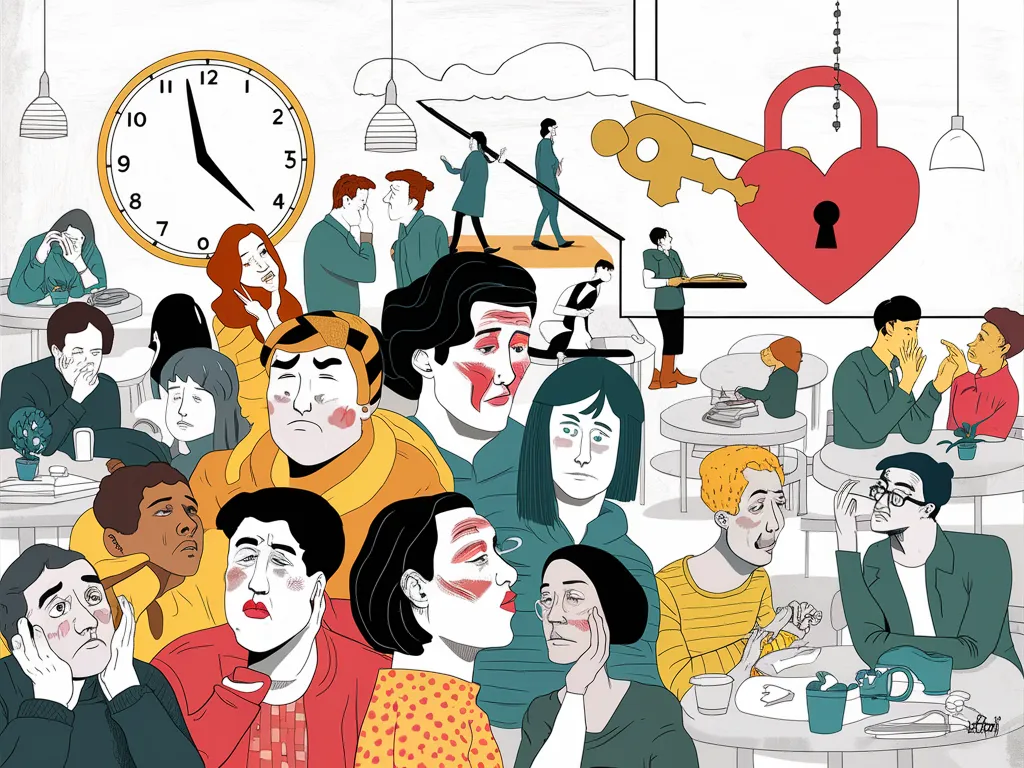Share This Article
In the society we live in, the ideal picture is a couple who are faithful to each other, live together, perhaps share a pet, and share their entire lives with each other. For many Dutch people, finding the ‘one’ and having a monogamous relationship is at the top of their priority list. But what does monogamy actually mean?
Are you not being monogamous when you are texting with your ex? Are you allowed to flirt with someone you just met on the train? Isn’t a kiss on the mouth monogamous? What exactly monogamy means varies per relationship. We’ll tell you more about it.
What is monogamy?
Monogamy is a concept with different meanings depending on who you ask. For most people, monogamy simply means having only one sexual partner and sex with anyone else is considered cheating . In a monogamous relationship, you usually share your intimate moments with one person, usually during a love affair.
Also read: 20 Best Date Night Ideas at Home
The opposite of monogamy is polygamy . This is the Greek name for a situation in which there are sexual relations with several people.
6 benefits of monogamy

Amid an abundance of options – especially on dating apps – you choose to give your heart, time and commitment to a single person. In a world full of choices, why choose this route?
1. Emotional depth
Monogamy offers the benefit of deep emotional connection . When you commit to one partner, you get the opportunity to understand and support each other on a deeper level. This means that you share each other’s fears, desires and dreams. That level is difficult to reach in a non-monogamous relationship.
Also read: Based on his zodiac sign, this is the type of woman he craves
2. Stability and security
Another advantage of monogamy is the stability and security it provides. In a monogamous relationship you know that your partner will always be there for you, in good times and bad. This creates a feeling of peace and security in your life.
3. Health benefits
Monogamy also has proven health benefits. By limiting your sexual relations to one partner, you significantly reduce the risk of sexually transmitted diseases. Additionally, there is evidence that monogamous couples live longer, healthier lives on average because they provide each other with support during times of stress and illness.
4. Trust and loyalty
Monogamy is good for deep-rooted trust and loyalty between you and your partner . The idea that you belong together exclusively creates a strong foundation of trust. This trust grows over time and becomes stronger, as an unshakable foundation on which you can build your relationship.
5. Easy communication
In a monogamous relationship, communication is often simpler and more direct. You don’t have to worry about multiple partners and the associated complex emotions. This means you can talk about your needs, desires and concerns more easily because there are no hidden agendas.
6. Family structure
Monogamous relationships provide a stable family structure, which is important to most people. This form of relationship also has advantages for any children in the relationship. Children generally grow better in an environment where they grow up with two parents who are devoted to their family.
Is monogamy natural?

In the animal kingdom, monogamy is not the norm. Some animal species have a lifelong partner, while others do not have a permanent partner. However, monogamy is rare in nature, where only 9 percent of mammals are considered monogamous. Humans belong to that small percentage, which means that we differ from many other living beings on this planet.
In the U.S and many other Western cultures, monogamy is the norm. The Civil Code even states that a person can only be married to one person, and it is a criminal offense to marry someone else as a married person. This is different in other cultures. Of the 238 societies worldwide, only a small minority promote monogamy.
A person can only be bound by marriage to one other person at a time. – Article 33
For example, in religious communities such as Muslims and various African cultures, men are allowed to have multiple wives. But in the U.S, this idea would really heat things up. Feminism has gained significant ground and many women would view this (a man with multiple wives) as an advantage for men, which of course it is in some respects. And on the other hand, it is rare for a woman to have several men at the same time. This occurs in less than 0.05% of cultures.
Where is the border?
The boundaries of monogamy are different for everyone. It seems like a simple concept, but once you dig deeper, you discover that loyalty in relationships is much more complex than you initially thought. Monogamy is usually interpreted as being exclusive to one person, both emotionally and sexually. This means sharing your love, affection and intimate moments with only one partner. But this is where the complexity begins: the definition of what is considered cheating varies widely from person to person and relationship to relationship.
For some, cheating can be limited to physical infidelity, such as having sex with another person. But for others, the concept of cheating can extend to emotional infidelity, such as sharing deep feelings and intimate thoughts with someone outside the relationship. This means that for one person an innocent flirt at a party may be considered cheating, while the other partner may have much more tolerance for such behavior. So the boundary of monogamy is not set in stone – rather, it is an unclear line that is drawn by each individual and couple in their own way.
What is acceptable to you and your partner may be unthinkable to others. That is why communication within a relationship is of the utmost importance. You need to talk openly about what monogamy means to you, what your boundaries are, and what expectations you have. Defining these boundaries can sometimes be difficult, but it is the key to a healthy and satisfying relationship.
Automatically monogamous

This all sounds great in theory, but in practice many people find it difficult to commit to one person forever. The number of marriages is decreasing and the number of divorces is increasing. Some choose to have an affair or practice ostrich politics by burying their heads in the sand, while others embrace the fact that monogamy may not be for everyone.
If you ask around in your circle of friends, you will notice that after many years in a relationship, everyone secretly longs for ‘something different’. This desire is often suppressed and remains a kind of ‘hidden desire’. But it doesn’t have to be that way.
Non-monogamy
There are successful relationships in which people have passionate interactions with others, of course with their partner’s consent. Their partner is aware and approves of it. It is important to realize that such relationships exist and can flourish. Many people think that a relationship is only possible if it is monogamous, but that is not always the case.
Even in so-called ‘monogamous relationships’, many are unable to always remain faithful. A recent survey of 238 participants showed that half of them have cheated at some point in their relationship. This study included lesbian women, straight women, gay men, and straight men. It proves that monogamy is not the only option for everyone.
Non-monogamy is all about consent. If your partner is not informed, it is a breach of trust. Being non-monogamous without your partner’s knowledge is not ethical and is considered betrayal. To make a non-monogamous relationship work, open and honest communication is essential.
Also read: Why loving yourself is so important and how to do it
Is monogamy right for you?
Monogamy may have worked for your ancestors and even your parents, but that doesn’t necessarily mean it will work for you. For many, monogamy is not as frightening as the alternative: an open relationship with multiple partners. Research into alternative lifestyles and non-traditional family forms became popular in the 1960s and 1970s, but due to a lack of support and funding, research soon stalled and studies on swingers and polyamory are few and far between.
Monogamy is often different for gay couples. Relationships between men are often more about monogamy in love than about sexual exclusivity. This is also evident from a 2010 study in which half of homosexual couples reported having sex with others while their partner was aware.
P.S. Are you already following Gistinger.com on Facebook , Instagram and Twitter?


